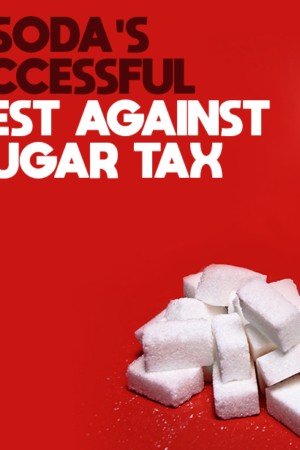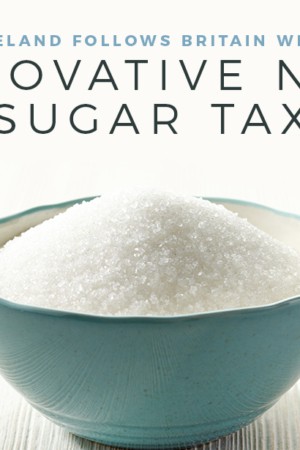A recent Citizen Petition for the Stricter Regulation of Added Sugar is calling on the FDA (along with the Drug Enforcement Administration) to “amend the Drug Schedules to include added sugar to either Schedule I or Schedule II of the Controlled Substances Act.” This would be to classify added sugar alongside other hyper-addictive hard drugs like heroin and cocaine.
Consumers and medical experts, dismayed by the slow progress of sugar taxes in cities around the United States, are turning to the federal government to create change. More specifically, they’re going after the Food and Drug Administration, which oversees nutrition guidelines and regulations. The complaints brought to the doorstep of the FDA last year have a simple and overarching theme: experts want the government to do a better job regulating sugar consumption. While the decision to change the Nutrition Facts Label was lauded from the outset, developments since then have left the anti-sugar camp with good reason for disappointment.
Call Sugar a Drug
While the future of the petition’s demands is unknown, it is at the very least a provocative demonstration by experts of the seriousness with which added sugar should be treated.1 Such efforts could hardly come at a better time, as Americans are finally beginning to decrease their sugar consumption as the very public battle against food and beverage manufacturers continues.
Fighting Federal Inactivity
The truth, however, is that one should not hold out hope for immediate action to be taken by the FDA. As recently covered on Tasteaholics, the Food and Drug Administration is sitting on a decision to make significant and long overdue changes to the Nutrition Facts Label. Most importantly, the new labels would include a separate line for added sugars, along with a number indicating the percentage of the recommended daily amount of sugar in the product. FDA commissioner Scoot Gottlieb has announced, however, that the administration will be delaying the new labels—originally supposed to be implemented this summer—for at least 2 or 3 years.2
It has therefore once again fallen to independent researchers to hold the government accountable for its failure to act in the face of industry lobbyists and financial might. The president of the Center for Science in the Public Interest released a statement condemning the decision to “cave in to food industry demands,” arguing that it “harms the public’s health, denies consumers vital information, and created an unfair and confusing marketplace as many companies have gone ahead with the labels anyway.”3 In such instances, one should not underestimate the power of the food and drink industry in swaying government to its interests. Continuing to protest delays like these and bring them into public consideration is the least that can be done.
NUTRITIONAL DISCLAIMER
The content on this website should not be taken as medical advice and you should ALWAYS consult with your doctor before starting any diet or exercise program. We provide nutritional data for our recipes as a courtesy to our readers. We use Total Keto Diet app software to calculate the nutrition and we remove fiber and sugar alcohols, like erythritol, from the total carbohydrate count to get to the net carb count, as they do not affect your blood glucose levels. You should independently calculate nutritional information on your own and not rely on our data. The website or content herein is not intended to cure, prevent, diagnose or treat any disease. This website shall not be liable for adverse reactions or any other outcome resulting from the use of recipes or recommendations on the Website or actions you take as a result. Any action you take is strictly at your own risk.
- For Keto, the Everyday Research Says it All - March 6, 2019
- Huge Harvard Study Backs Up the Wide-Ranging Benefits of a Low-Carb Diet - February 25, 2019
- Experts Convene for Keto Conference - July 30, 2018




